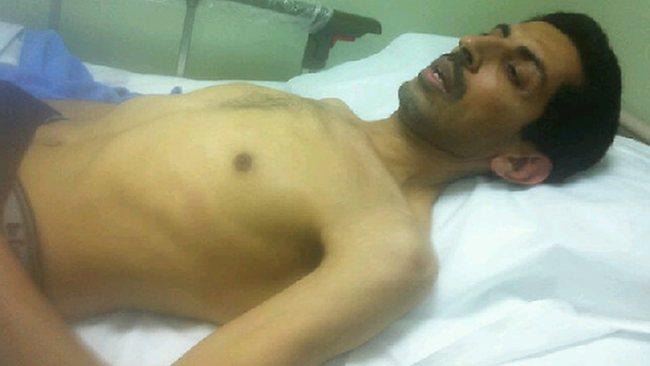Lawyer fears Bahrain activist has died
JAILED hunger-striking dissident Abdulhadi al-Khawaja was feared to have died, his lawyer said last night.

JAILED hunger-striking dissident Abdulhadi al-Khawaja was feared to have died, his lawyer said last night, after Bahraini authorities turned down repeated requests to contact him.
Lawyer Mohammed al-Jeshi said nobody had been allowed to see Mr Khawaja, who has been on hunger strike for 60 days, since Saturday, the day after the 50-year-old was transferred from the interior ministry hospital into a military hospital in Manama.
"Authorities have been refusing since yesterday (Sunday) all requests, made by myself and by his family, to visit or contact al-Khawaja," Mr Jeshi said.
"We fear that he might have passed away as there is no excuse for them to prevent us from visiting or contacting him."
Mr Jeshi said that no information was available on the health of Mr Khawaja, who has shed 25 per cent of his body weight.
However, government spokesman Abdulaziz bin Mubarak al-Khalifa, a member of the royal family, earlier said Mr Khawaja's condition was stable, he was being monitored by three doctors and receiving water and nutrients.
The fate of Mr Khawaja could help to decide whether the Bahrain Grand Prix, scheduled for this month, will go ahead.
It is understood that Formula One teams have drawn up plans to abandon the race amid fears that security in the Gulf state will deteriorate.
Despite assurances to officials in Manama that the race is committed to returning, hundreds of engineers, mechanics and catering staff have been issued with two return tickets from the race in China next Sunday: one for Bahrain, scheduled for the next weekend, and one for Europe and home.
Last year's grand prix was scrapped as violence broke out across Bahrain, with troops sent to crush protests calling for democratic reform from the ruling al-Khalifa family.
Mr Khawaja was jailed for life by a military court last June during a violent crackdown on anti-government protests that left more than 50 people dead.
Yesterday, Bahrain reportedly rejected a Danish request that Mr Khawaja, who holds Danish nationality, be flown to that country.
Danish papers quoted the head of the foreign ministry's consular service, Ole Engberg Mikkelsen, as saying "a reply will come through diplomatic channels and not via a news agency or Twitter".
Mr Mikkelsen said he did not know when Manama would send its official reply.
"Unfortunately, there is not much time. It is a case where the clock is ticking," he said.
"We are continuing our efforts to convince Bahrain that it is in everyone's interest that he be extradited."
Front Line Defenders, a Dublin-based NGO, warned that Mr Khawaja could now die in jail, while Bahrain's largest opposition movement, al-Wefaq, condemned that decision, saying it amounted to having "signed his death" sentence.
Mr Khawaja's plight has become a rallying point for the latest demonstrations. His daughter Maryam, who was in Cairo, said: "My sister visited him and said he was so weak he could barely breathe. He says if he dies, he will die with dignity."
Mr Khawaja was one of several dissidents and opposition leaders jailed by the military courts last year, accused of masterminding protests and conspiring with Iran and Hezbollah to overthrow the government. The men claimed they had been tortured in custody.
AFP, THE TIMES


